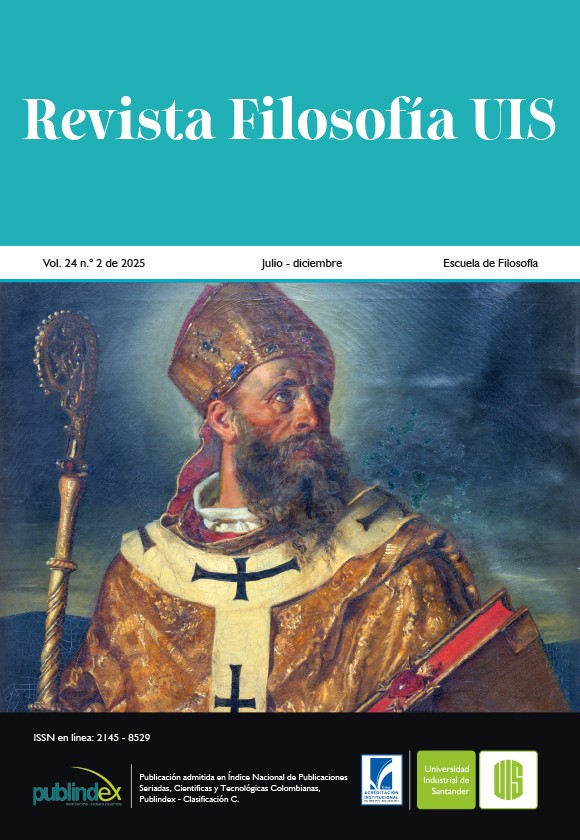La inteligencia artificial en el mundo del trabajo asalariado: una crítica en clave marxista frente a un horizonte de posibilidades
Publicado 29-03-2025
Palabras clave
- ludismo,
- inteligencia artificial,
- socialización,
- capitalismo,
- crisis del trabajo
Cómo citar
Derechos de autor 2025 Revista Filosofía UIS

Esta obra está bajo una licencia internacional Creative Commons Atribución 4.0.
Resumen
En este artículo pretendemos mostrar la validez que la crítica de Karl Marx al movimiento del ludismo presenta en nuestra actualidad marcada por la incipiente implementación de los sistemas de inteligencia artificial al mundo del trabajo. Pretendemos hacer ver que este escenario, y las posibilidades que plantea, abren, desde el punto de vista marxista, todo un horizonte de posibilidades de cara a la conquista de nuevas cuotas de libertad para los seres humanos, pero que estas solo son posibles de alcanzar si somos capaces de superar el sistema capitalista, pues como argumentó Marx en su crítica al movimiento del ludismo, la tecnología no es, por sí misma, ni buena ni mala, su condición moral depende de cómo la misma se emplee y esa utilización viene determinada por la cultura dominante en una sociedad.
Descargas
Citas
- Adorno, T. y Horkheimer, M. (2007). Dialéctica de la Ilustración. (J. Chamorro, Trad.). Ediciones Akal.
- Bastani, A. (2020). Comunismo de lujo totalmente automatizado. (L. Martínez, Trad.). Editorial Antipersona.
- Calle Zapata, M. (2024). Karl Marx, el joven hermeneuta: una crítica a la nueva gramática teológica del capitalismo. Revista Filosofía UIS, 23(1), 198-223. https://doi.org/10.18273/revfil.v23n1-2024009
- Chamayou, G. (2022). La sociedad ingobernable. Una genealogía del liberalismo autoritario. (A. Bixio, trad.). Ediciones Akal.
- Corvalán, J. G. (2019). El impacto de la Inteligencia Artificial en el Trabajo. Revista de direito econômico e socioambiental, 10(1), 35-51. https://doi.org/10.7213/rev.dir.econ.soc.v10i1.25870
- Federici, S. (2021). Reencantar el mundo. El feminismo y la política de los comunes. (M. A. Catalán, Trad.). Traficantes de sueños.
- Fernández Liria, C. (2021). El homo economicus. Keynes y Russell, cien años después. Res Pública. Revista de Historia de las Ideas Políticas, 24(2), 205-210. https://doi.org/10.5209/rpub.72841
- Goñi Sein, J. L. (2019). Innovaciones tecnológicas, inteligencia artificial y derechos humanos en el trabajo. Documentación laboral, (117), 57-72.
- Hickel, J. (2023). Menos es más. Cómo el decrecimiento salvará al mundo. (C. Ministral, Trad.). Capitán Swing.
- Horgan, A. (2022). Atrapats a la feina. Com escapar del capitalisme. (M. Sorribas, Trad.). Tigre de paper.
- Lafargue, P. (2010). El derecho a la pereza. (J. Alvarado, Trad.). Editorial Sol.
- Laval, C. y Dardot, P. (2015). Común. Ensayo sobre la revolución en el siglo XXI. (A. Díez, Trad.). Editorial Gedisa.
- López-González, J. L. (2023). La turistificación del trabajo: bases para la crítica de un fenómeno de la aceleración social manifestado en el bleisure y el workation. Cuadernos de Relaciones Laborales, 41(2), 335-348. https://doi.org/10.5209/crla.87872
- Marx, K. (2014). El capital. Critica de la economía política. (W. Roces, Trad.). Fondo de cultura económica.
- Marx, K. y Engels, F. (2009). El manifiesto comunista. (F. Cardona, Trad.). Ediciones Brontes.
- Marx, K y Engels, F. (2014). La ideología alemana. (W. Roces, Trad.). Ediciones Akal.
- Nowotny, H. (2022). La fe en la inteligencia artificial. Los algoritmos predictivos y el futuro de la humanidad. (A. Bosch, Trad.). Galaxia Gutenberg.
- Selma Penalva, A. (2021). Inteligencia Artificial y Derecho del Trabajo. Ius et scientia, 7(2), 29-40. https://hdl.handle.net/11441/134185

